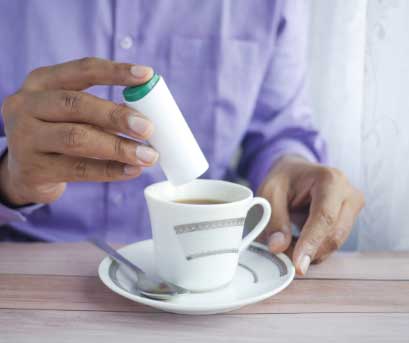High blood pressure, or hypertension, is a common condition that can increase the risk of heart disease and stroke. While medication is often prescribed to manage blood pressure, there are also natural treatments and lifestyle changes that can help. Learn about the best natural remedies to keep your blood pressure under control.
Why Hypertension Occurs:
Before you can effectively manage high blood pressure, it’s important to understand the underlying causes. Some of the most common causes include a diet high in sodium, lack of physical activity, obesity, stress, and genetics. By identifying the root cause of your high blood pressure, you can make targeted lifestyle changes and natural treatments to help lower it.
Common Symptoms of Hypertension:
Hypertension is often dubbed the “silent killer” because it may not present noticeable symptoms until it reaches a severe stage. However, common signs may include persistent headaches, dizziness, and shortness of breath. Regular blood pressure monitoring is essential, especially if you have risk factors like a family history of hypertension or a sedentary lifestyle.
Natural Treatments for Blood Pressure Management:
Nutritional Interventions:
A naturopathic approach to hypertension begins with nutrition. Emphasising a heart-healthy diet rich in fruits, vegetables, whole grains, and lean proteins can positively impact blood pressure. Specific foods like garlic, beetroot, and omega-3 fatty acids have been studied for their potential blood pressure-lowering effects. Additionally, reduce your sodium intake, as excess sodium can cause your body to retain water and increase blood pressure. Aim to consume no more than 2,300 milligrams of sodium per day, and even less if you have other health conditions like kidney disease. The easiest way to reduce your sodium intake is to eat fewer processed foods.
Herbal Support:
Herbal remedies play a significant role in naturopathy’s approach to hypertension. Plants like hawthorn, olive leaf extract, and passionflower are known for their cardiovascular benefits, helping to regulate blood pressure naturally. I recommend always consulting a naturopath about your specific case before starting to use herbal medicine, in order to avoid any contra-indications, and to ensure that you’re using the most effective herbal preperation and dose for you.
Lifestyle Adjustments:
Naturopaths guide individuals towards lifestyle changes to manage hypertension effectively. Stress reduction techniques, regular exercise, and adequate sleep are integral components. Some effective stress-reducing techniques include meditation, deep breathing exercises, yoga, and tai chi. Additionally, getting enough sleep and practicing good sleep hygiene can also help reduce stress levels. It’s important to find what works best for you and make stress reduction a regular part of your routine.
When it comes to exercise, start slowly and don’t over-exert yourself. Aim for at least 30 minutes of moderate-intensity exercise most days of the week, such as brisk walking, cycling, or swimming – but don’t be shy about building up towards this goal if you are not currently exercising. Exercise helps strengthen the heart and blood vessels, which can lower blood pressure over time. It also helps with weight management, which is important for reducing the risk of high blood pressure and other health problems.
Supplements:
In some cases, naturopaths may recommend supplements like magnesium, potassium, or coenzyme Q10 to support cardiovascular health. However, it’s crucial to consult with a qualified naturopath before incorporating supplements into your routine.
Consider Natural Supplements and Remedies.
In addition to lifestyle changes, there are also natural supplements and remedies that can help manage high blood pressure. Some of the most commonly used supplements include garlic, fish oil, and magnesium. These supplements have been shown to have a positive effect on blood pressure levels, but it’s important to talk to your doctor before starting any new supplement regimen. Additionally, some natural remedies like hibiscus tea and beet juice have also been shown to have a positive effect on blood pressure. Again, it’s important to talk to your doctor before trying any new remedies.
Practical Takeaways:
While naturopathy offers holistic approaches to managing hypertension, it’s essential to collaborate with a qualified practitioner for personalised guidance. Simple lifestyle changes, mindful eating, and regular check-ups can form the foundation for long-term blood pressure control.
By addressing the root causes through nutrition, herbal remedies, and lifestyle adjustments, individuals can take proactive steps towards optimal cardiovascular health. If you’re ready to explore natural approaches to hypertension, schedule an appointment with me, and let’s embark on this wellness journey together. If you’re looking for a life changing blood pressure management online course, consider joining this course!



